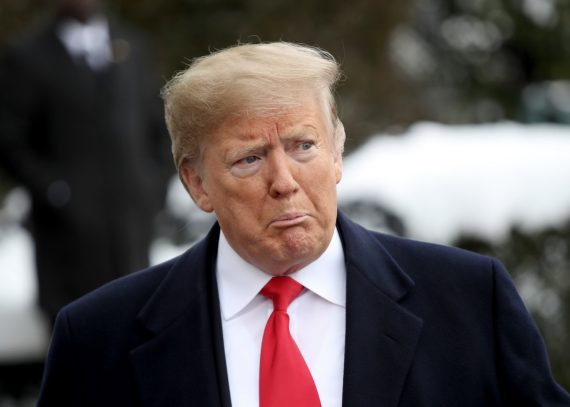2018 was rather a tumultuous year for the Turkish economy. At the root of the economic troubles lay the steep depreciation of the Turkish Lira against the U.S. dollar. And, I should stress once again that not some economic weaknesses on the part of Turkey but pure politics triggered what happened in financial markets, as U.S. President Donald Trump and his aides made it very clear time and again. Lastly, Trump threatened Turkey economically in a very flagrant way in a politically motivated tweet posted on 13th January, which reads that “[the US] will devastate Turkey economically if they hit Kurds”.
Yes, conflating a terrorist organization and a race is the main -and incredibly egregious- problem here. At this point I should underscore that for years Turkey has been a safe haven not just to Syrian Arabs and Turkmens -and other ethnicities-, but also hundreds of thousands of Syrian Kurds, who fled the brutal Syrian regime and terrorist organizations such as the YPG, the PKK’s Syrian wing, which Trump and major international media outlets are outrageously happy to equate with Kurdish-ness.
However, there is another serious “conflation” problem with Trump’s discourse. Politics and economics are different domains, though they are ipso facto intertwined considerably. And yes, a state could try to use its economic/financial leverage against another state with which it has conflicting interests. However, there are constraints. You can use your economic/financial power to achieve your political goals to an extent. If you overstep and overuse your leverage as to debase “economic rationale,” then you and the global economy itself will certainly suffer serious economic and political side effects sooner or later in such ways that no one can anticipate beforehand. And the U.S., the hegemonic power of the world for now, is not exempt from this “natural rule.”
You can use your economic/financial power to achieve your political goals to an extent. If you overstep and overuse your leverage as to debase “economic rationale,” then you and the global economy itself will certainly suffer serious economic and political side effects sooner or later.
Yet, what came next from Trump caused many to scratch their heads. After having talked to Recep Tayyip Erdogan, the President of Turkey, Trump posted another tweet the very next day, on 14th January and said that “[we] also spoke about economic development between the U.S. & Turkey – great potential to substantially expand!”
Really? One day the Turkish economy could be devastated by you upon necessity, another day you want to further economic ties with Turkey.
Recommended
Trump’s line of reasoning then, should be something like this: the Turkish economy has considerable potential to offer great opportunities, unless the U.S. does not want to devastate it out of political reasons.
This is not good politics. On the one hand, it is terribly erratic and unsteady. On the other hand, it amounts to economic blackmailing, which totally disregards natural workings of the world economy and distorts the global economic/financial system (founded by the U.S. itself) to an extent.
Really? One day the Turkish economy could be devastated by you upon necessity, another day you want to further economic ties with Turkey. This is not good politics Mr. Trump.
Today, we are living in a world economy/finance in which every economic actor is incredibly interconnected to one another, directly or indirectly. A technological breakthrough or yet another company producing state-of-the-art smart phones benefits everyone more or less. For example, without China having its economic reform and incredible growth rates in the last four decades, the world would certainly be poorer today. So, with a mercantilist mindset, trying to hurt national economies when deemed necessary means risking global economic instabilities and fluctuations. And, as the first half of the 20th century bitterly attests, once you lose economic cooperation and harmony, it is very troublesome to reach stability at the global level again. (Against this background, I can add that the “trade wars” the U.S. administration seems waging now is also risking global disharmony and instability.)
Therefore, in such an “interconnected” and “intertwined” world, the economic sphere must have a certain degree of immunity from politics. Not just individual countries but the whole world needs this. And will be even more so as the 21st century progresses.





